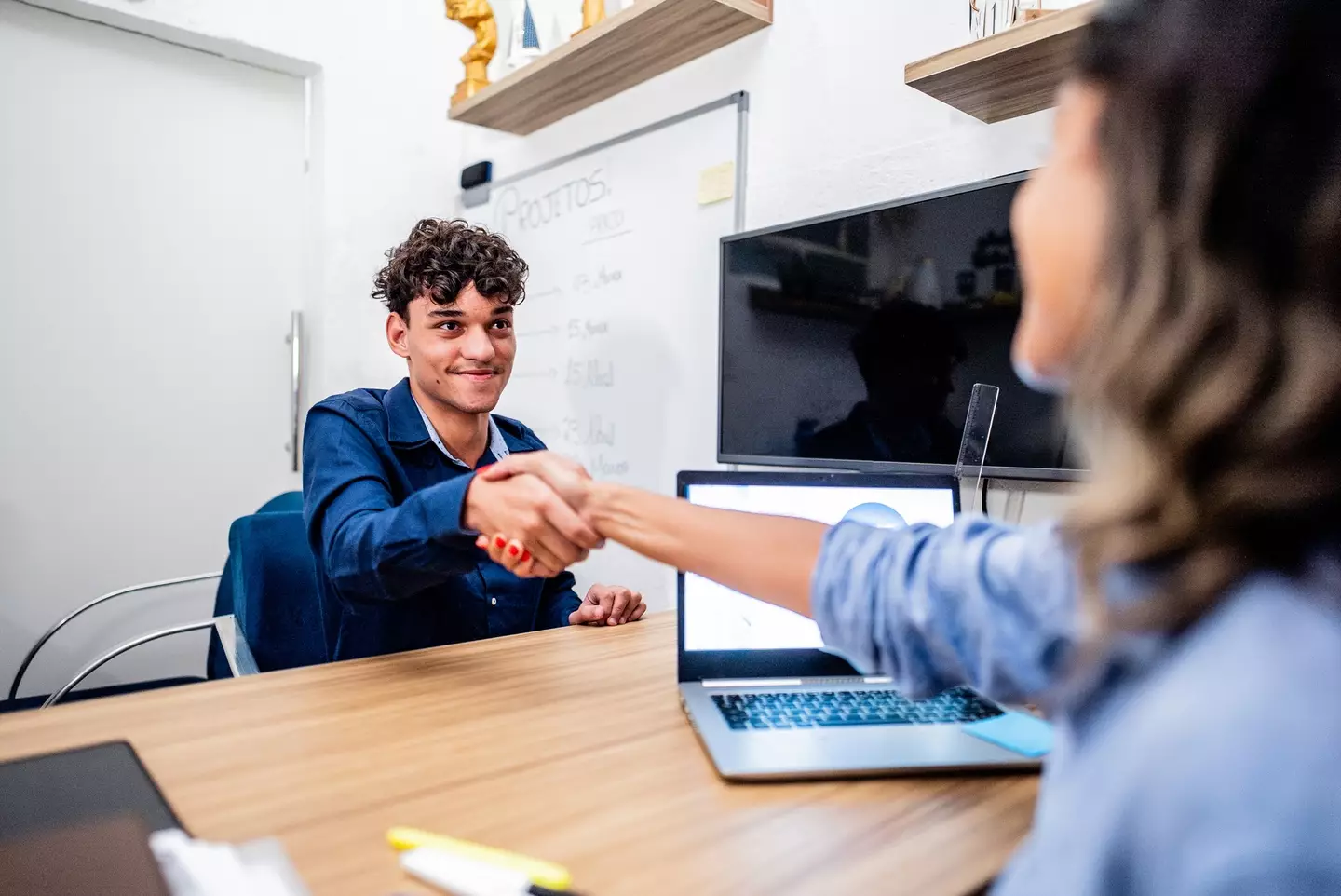
Job hunting can be a real slog, no matter your circumstances.
Whether you're jobless and grinding for your next gig, or simply taking a punt on a dream role, I'll bet we all share the same dislike of the job hunt.
From being ghosted to endless rejections, it can fast become demoralizing.
In fact, making it through to the interview stage can feel like a miracle in itself sometimes. But if anything, that's when the real work begins.
Advert
We were already aware of the coffee cup test and the equally as bizarre 'salt and pepper' check.
Now, there's yet another subtle trick employers use that we have to contend with.
And if you hate the pressure of first impressions, then I hate to break it to you, but they're actually more important that we ever realized - according to the hiring experts, that is.

That's right; the moment that apparently makes or breaks your interview often happens before a single official question is asked.
Recent studies have shown that around 60 percent of decisions were made within the first 15 minutes of an interview, while first impressions are formed in under seven seconds.
So technically, the real test doesn’t start when you sit down, but the second you walk through the door.
Sharon Armstrong, recruitment specialist and founder of Armstrong Appointments, says most candidates are oblivious to the idea they’re being judged before the interview begins.
"People think the interview starts when we start asking questions, but in reality, we’re assessing from the moment we meet you," she said.
"The way you enter a room, how you greet us, and what you say in those first 30 seconds gives away more than a polished answer ever could."

Talk about pressure! Worse still, the question that could trip you up is often subtle and casual.
'Did you find us okay?' or 'How was your journey?' is sometimes all interviewers need to ask to make up their minds.
While it might feel like small talk, the question is actually one of the first things interviewers use to assess how you think, how you carry yourself, and how you handle pressure.
These early moments reveal your mindset, Armstrong says.
A short, polite, upbeat response shows 'composure and preparation', while a flustered or negative reply, even unintentionally, suggests stress, disorganization or poor self-awareness.

So, how do you 'correctly' answer such a question?
According to the experts, a simple response like 'All fine, thanks. I always leave a bit early just in case', goes a long way.
Here, your interviewer could be checking to see if you can stay calm, composed and upbeat in that moment, apparently signalling reliability and self-awareness.
So take this as your sign to perfect your first impression at your next interview.
Otherwise, it may just cost you the job!